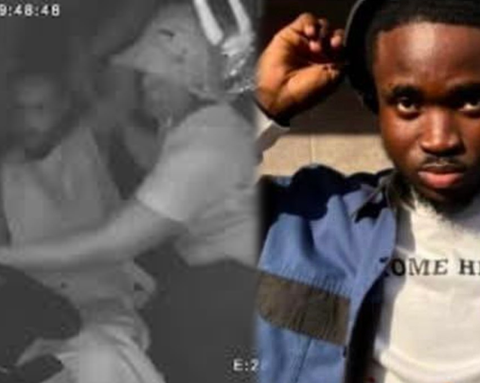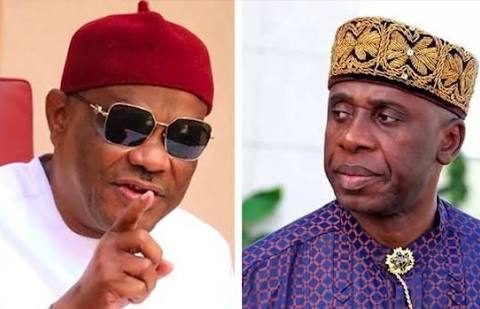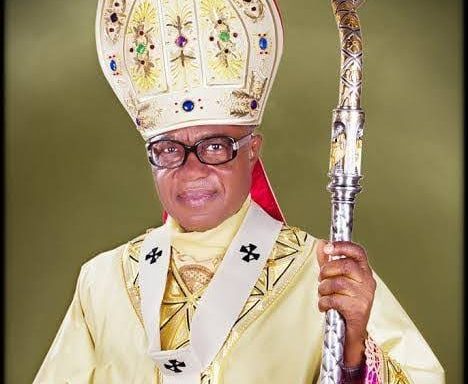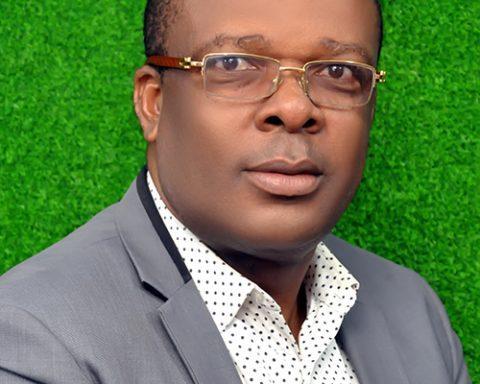After 13 years of resistance, the Northern States Governors’ Forum has unanimously endorsed the creation of state police to combat insecurity challenges in the region. This development has sparked debate about the motivations behind the governors’ U-turn and whether it’s a timely shift or political convenience.
The 19 northern states involved include those from the North West, North East, and North Central geopolitical zones, Zamfara, Kano, Benue, Katsina, Sokoto, Kaduna, Jigawa, Kebbi, Adamawa, Borno, Bauchi, Taraba, Gombe, Yobe, Kwara, Kogi, Nasarawa, Niger, and Plateau.
Join our WhatsApp ChannelThis unanimous endorsement was made during a joint meeting of the Northern States Governors’ Forum (NSGF) and the Northern States Traditional Rulers’ Councils held in Kaduna on 10 May 2025. The governors called on the National Assembly to fast-track the enactment of the legal framework to establish state police forces, arguing that decentralising security management will allow more effective and efficient responses tailored to local needs.
Northern governors initially rejected the creation of state police in 2012, despite an earlier collective call by all 36 governors for its establishment.
In June 2012, the Nigeria Governors’ Forum supported state police as a strategy to tackle escalating insecurity, but just a month later, in July 2012, the 19 northern governors reversed their position and formally rejected state police during a meeting in Abuja. They argued that Nigeria was not yet ready for state police and instead called for police reforms that would allow states more control over police affairs without creating separate forces.
Northern governors now align with southern Nigeria on state policing
After years of resistance, almost 13 years, the 19 northern governors under the Northern States Governors’ Forum (NSGF) officially endorsed state police in May 2025, calling on the National Assembly to expedite the legal framework for its establishment.
This advocacy is rooted in the historical context of Nigeria’s policing system, which was centralised after regional police forces were disbanded between 1966 and 1972 to prevent misuse during ethnic and political conflicts.
Proponents of federalism have argued that in a true federal structure, states should control their security agencies to complement those of the federal government.
But during President Buhari’s administration, the government said, “State police is not an option.”
“Find out the relationship between local government and the governors. Are the third tier of government getting what they are supposed to get constitutionally? Are they getting it? Let the people in local government tell you the truth, the fight between local governments and the governors,” Mr Buhari said.
Now that the northern governors have made a U-turn, it shows that the Northern Governors’ Forum (NGF) clearly gave President Bola Tinubu a “thumbs down” on security by calling for a review and change in security strategies amidst rising insecurity in Northern Nigeria.
READ ALSO: State Police Won’t Solve Nigeria Security Challenges – Buhari
They may have acknowledged Tinubu’s commitment to tackling insecurity but stressed that recent setbacks, including the resurgence of Boko Haram in the Northeast and violent killings in the North-central and Northwest, require immediate and more effective action.
House of Representatives says passage of bill may take time
The House of Representatives’ Benjamin Kalu recently said that Nigerians seeking state police will have to wait a little longer as the process of amending the 1999 Constitution may take time.
The police bill, sponsored by Kalu and 14 others, just passed the second reading on 20 February 2024.
The bill comprises 18 clauses and aims to amend Sections 34, 35, 39, 42, 84, 89, 129, 153, 197, 214, 215 and 216 of the Constitution.
The constitutional amendment process is meant to run from January 2024 to December 2025, according to the work plan unveiled by the Committee on Constitution Review chaired by the Deputy Speaker, House of Representatives, Benjamin Kalu.
Then, what if the governors had not rejected state policing since 2012? By now, the process could have been history. Do they really want the National Assembly to rush the process?
According to the work plan, the engagement in June will involve “Meeting with all 36 state governors to seek their backing for the amendment when the bill gets to the states’ assembly.”
READ ALSO: Nigerians Bemoan Unbearable Hardships Over Rising Food Prices, Insecurity
Additionally, what if the southern states now reject the offer as it was in 2012? There will also be an engagement with the governors to seek their support for the passage of the controversial local government autonomy bill.
Reasons northern governors formerly rejected state policing initially
In 2012, state policing was rejected due to fears of political abuse, threats to national unity, potential jurisdictional conflicts, and states’ financial incapacity to sustain forces. Historical misuse of local police and opposition from some regions fuelled concerns about politicisation and inefficiency in law enforcement.
Was insecurity any worse now than then?
While Boko Haram insurgency was the primary threat in the early 2010s, insecurity has since fragmented into multiple, overlapping crises affecting wider areas and more civilians. The death toll remains high, evolving from insurgency to include banditry, kidnappings, and communal violence, complicating security responses.
In 2012, violent deaths were rising but below the peak years, with Boko Haram insurgency intensifying (exact 2012 deaths estimated in thousands, part of a rising trend leading to 22,873 deaths in 2014).
By 2022, Nigeria recorded over 21,000 violent deaths, with insecurity spreading beyond the Northeast to Northwest, North-central, and Southeast regions.
In 2023 to 2024, the death toll surged dramatically, with over 600,000 deaths reported from insecurity between May 2023 and April 2024, largely due to banditry and other violent conflicts.
According to the Nigeria Situation Report (January 2025) by ReliefWeb, nearly eight million people require humanitarian assistance due to ongoing conflict and displacement, especially in Zamfara and Borno states.
The Castor Vali Q1 2025 Nigeria Security Report details over 1,420 deaths and 537 kidnappings in the first quarter of 2025, highlighting persistent violence mainly in the Northwest and North-central regions.
The Nextier Nigeria Violent Conflicts Database recorded 278 casualties from terrorism and 253 from banditry in 2024, with violence continuing into 2025.
The Kimpact Development Initiative report states that over 91,000 Nigerians died from insecurity between 2011 and 2024, with 14,470 deaths in 2014 alone, underscoring a worsening trend.
The 2025 Humanitarian Needs and Response Plan projects about 33 million Nigerians facing food insecurity in 2025, driven by violence and economic hardship.
These sources collectively confirm the high death toll, widespread displacement, and urgent humanitarian needs due to insecurity in early 2025.
Why the North must think more about holistic security and development in Nigeria than being north-centric
The Governors’ Forum must adopt a holistic security and development approach that transcends north-centric perspectives to effectively address Nigeria’s complex challenges.
While the North faces significant security threats, from Boko Haram in the Northeast to banditry and emerging terror groups like Lakurawa in the Northwest, these issues are interconnected with broader national and regional dynamics.
In this way, the Governors’ Forum should also address religious intolerance and bigotry, which join ethnic jingoism as Nigeria’s worst nightmares.
A narrow focus on northern interests risks overlooking the importance of national unity, equitable development, and regional cooperation.
Experts emphasise that military efforts alone solve only about 30 per cent of security problems; the remaining 70 per cent require socio-political, economic, and governance interventions that benefit all Nigerians.
This includes improving intelligence gathering, enhancing welfare for security agencies, investing in economic opportunities, and fostering political solutions to conflicts across all regions.
That is what will fill the gap between the need for unity and the seriousness of purpose in tackling insecurity in Nigeria as a whole.
The National Assembly must rise from the eternal ashes of playing politics with security
In this wise, the National Assembly must rise from the “eternal ashes” of politicising security by prioritising effective and unified legislative action to address Nigeria’s growing security challenges.
Instead of playing politics, lawmakers should focus on passing laws that enhance coordination among security agencies, support the establishment of state police where appropriate, and fast-track constitutional amendments to strengthen the security architecture.
Timely approval and adequate funding of security budgets are crucial, as demonstrated by the increased security allocation in the 2025 budget. By transcending partisan conflicts and working collaboratively, the National Assembly can strengthen Nigeria’s security framework and restore public confidence in the nation’s safety.
A clear example of the politicisation of security agencies in Nigeria occurred during the 2019 general elections. Security forces, including the military and the Department of State Services (DSS), were accused of colluding with politicians to manipulate the electoral process, undermining free and fair elections.
Some security personnel reportedly aided election rigging and suppressed opposition supporters, compromising their constitutional duty to provide a neutral and secure environment for voting.
This politicisation heightened electoral violence and distrust in security institutions, illustrating how political interests have compromised Nigeria’s security apparatus and worsened insecurity.
Dr Mbamalu, a Jefferson Journalism Fellow, member of the Nigerian Guild of Editors and Media Consultant, is the Publisher of Prime Business Africa
Dr. Marcel Mbamalu is a distinguished communication scholar, journalist, and entrepreneur with three decades of experience in the media industry. He holds a Ph.D. in Mass Communication from the University of Nigeria, Nsukka, and serves as the publisher of Prime Business Africa, a renowned multimedia news platform catering to Nigeria and Africa's socio-economic needs.
Dr. Mbamalu's journalism career spans over two decades, during which he honed his skills at The Guardian Newspaper, rising to the position of senior editor. Notably, between 2018 and 2023, he collaborated with the World Health Organization (WHO) in Northeast Nigeria, training senior journalists on conflict reporting and health journalism.
Dr. Mbamalu's expertise has earned him international recognition. He was the sole African representative at the 2023 Jefferson Fellowship program, participating in a study tour of the United States and Asia (Japan and Hong Kong) on inclusion, income gaps, and migration issues.
In 2020, he was part of a global media team that covered the United States presidential election.
Dr. Mbamalu has attended prestigious media trainings, including the Bloomberg Financial Journalism Training and the Reuters/AfDB Training on "Effective Coverage of Infrastructural Development in Africa."
As a columnist for The Punch Newspaper, with insightful articles published in other prominent Nigerian dailies, including ThisDay, Leadership, The Sun, and The Guardian, Dr. Mbamalu regularly provides in-depth analysis on socio-political and economic issues.









